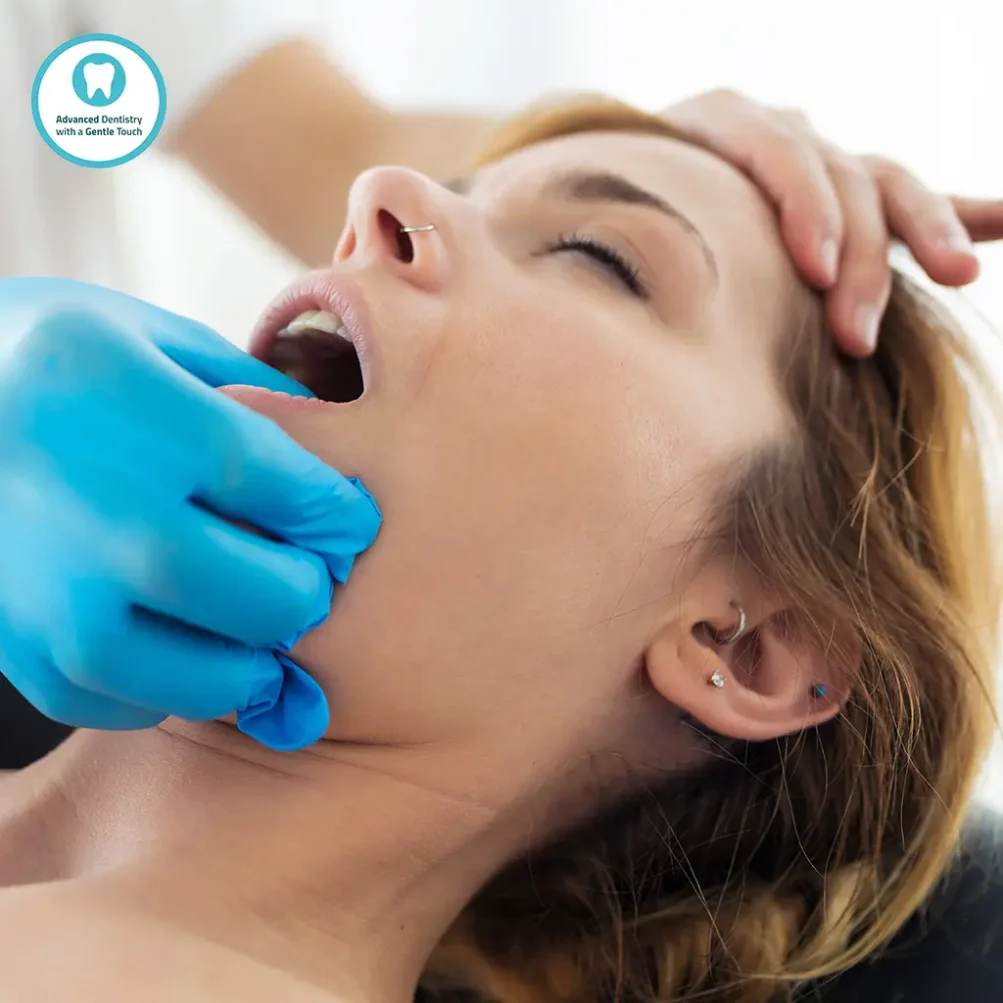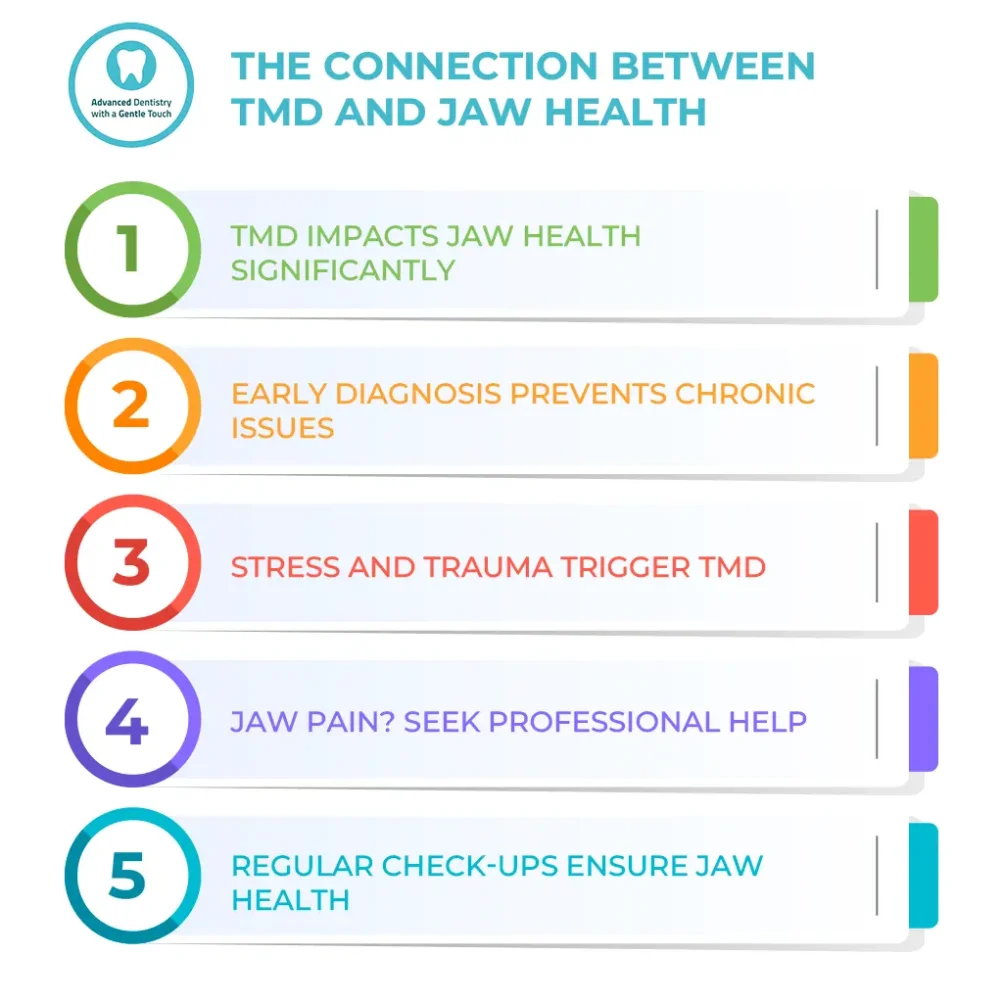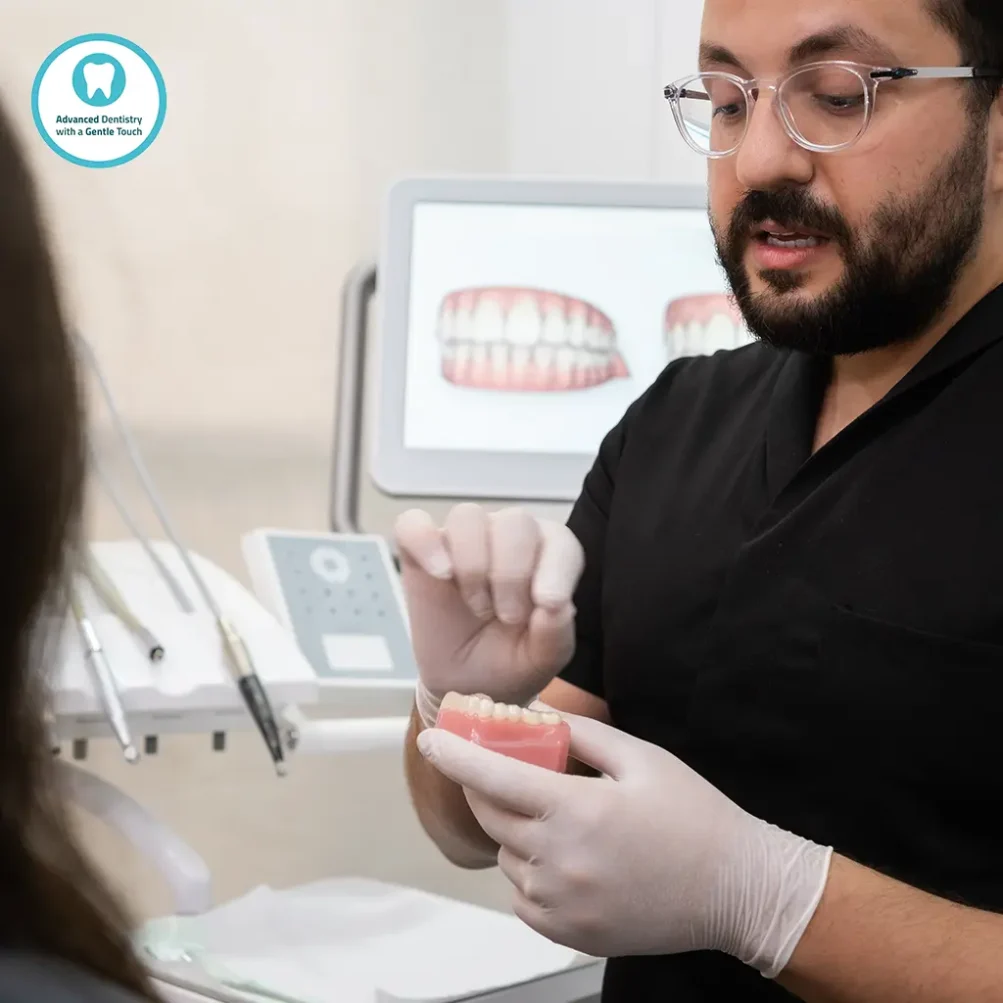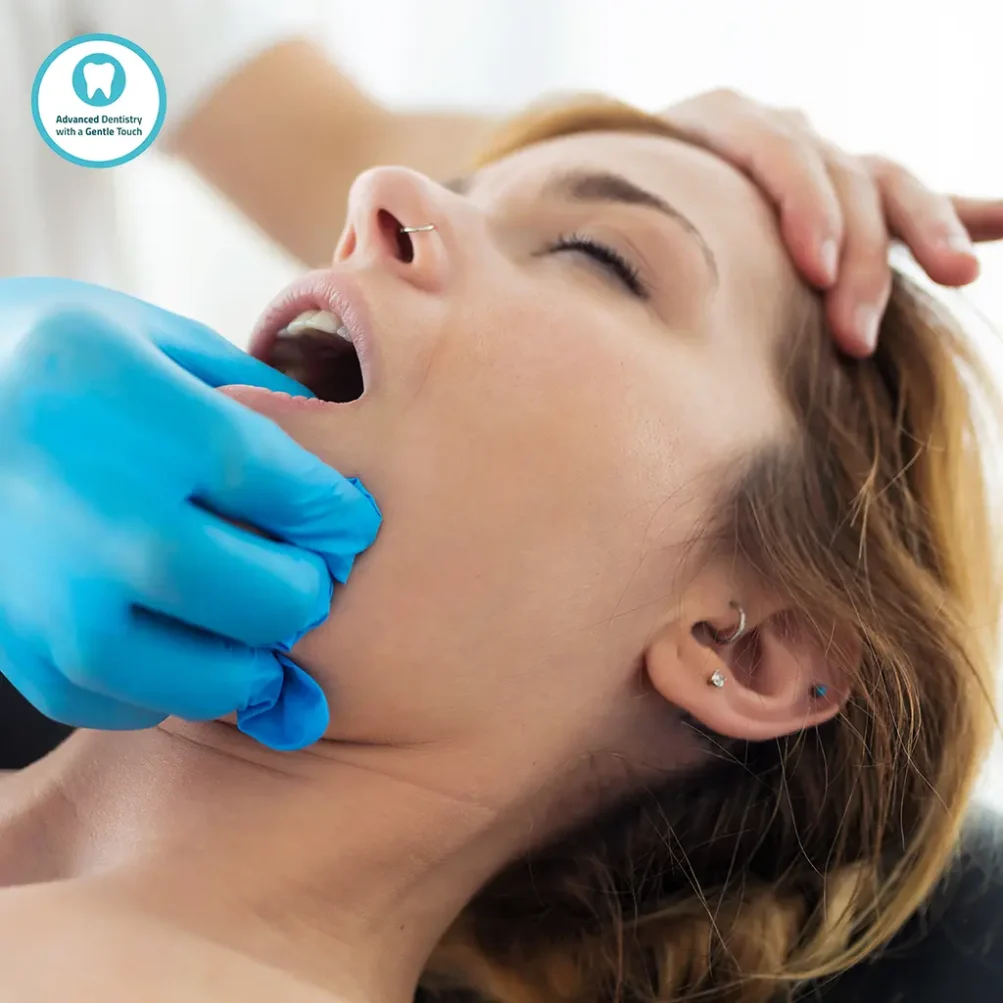The Connection Between TMD and Jaw Health

TMD, or Temporomandibular Disorders, refers to a group of conditions affecting the temporomandibular joint, which connects the jaw to the skull. This joint plays a crucial role in everyday activities such as chewing, speaking, and even breathing.
Jaw health is intrinsically linked to the proper functioning of this joint. When there is any disruption or dysfunction in this area, it can lead to significant discomfort and impact one’s quality of life.
Understanding the connection between TMD and overall jaw health is essential for maintaining not only dental well-being but also general health. Issues with the temporomandibular joint can manifest in various ways, from mild discomfort to severe pain, making it difficult to perform basic daily functions.
This article will explore how TMD affects jaw health, the potential implications for your daily life, and why timely intervention is critical. By recognizing the symptoms of TMD early and seeking appropriate treatment, you can avoid more severe complications from TMD disorder and maintain optimal oral health.

Understanding TMD
What is TMD?
TMD stands for Temporomandibular Disorder, which involves issues with the temporomandibular joint (TMJ) and the muscles and ligaments that control jaw movement. This joint connects your jawbone to your skull and plays a crucial role in actions like chewing, speaking, and yawning.
When this joint is not functioning correctly, it can lead to a range of symptoms, the most common being jaw pain. Other symptoms include facial pain, difficulty in moving the jaw, and a clicking popping or grating sound when opening or closing the mouth.
The muscles that control jaw movement work closely with the TMJ to ensure smooth and pain-free motion. However, when these muscles or the joint itself are compromised, TMD can develop. Understanding the role of the TMJ and recognizing the symptoms of TMD are vital for seeking timely treatment and preventing further complications.
Common Causes of TMD
The causes of TMD can vary widely, from physical injuries to the joint itself to underlying health conditions. One of the primary causes is trauma to the jaw, which can misalign the muscles or stretch the ligaments that control jaw movement and lead to TMD development. Additionally, conditions like arthritis can wear down the joint, making it painful and difficult to move.
Another common cause of TMD is stress, which often results in bruxism – a condition where people unconsciously clench or grind their teeth. This repeated pressure on the TMJ mechanism can lead to inflammation and pain, contributing to the onset of TMD. Lifestyle factors, such as poor posture or even excessive gum chewing, can also play a role in the development of this disorder.
In some cases, misaligned teeth or bite issues may require orthodontics to correct the problem and reduce the pain. Addressing these causes early is important to prevent the condition from worsening and ensure that you maintain a healthy, pain-free jaw.
See also Dr. Korwin Invisalign Preferred Provider in Red Bank, NJ
The Impact of TMD on Jaw Health
How TMD Affects Jaw Functionality
TMD can significantly impact jaw function. When the joint TMJ is not working properly, it can lead to several issues that affect daily activities. You may experience difficulty opening or closing your mouth fully, which can cause a limited range of motion. In some cases, the jaw may lock open or closed, making it hard to move at all.
Additionally, many people with TMD notice a clicking or popping sound when they move their jaw. These symptoms can make simple tasks, such as eating, speaking, or yawning, uncomfortable and frustrating.
The chewing muscles, ligaments, and jaw joint work together to perform these everyday functions. When TMD interferes with this system, it disrupts the smooth coordination between these parts, leading to noticeable impairments in jaw functionality. As a result, you may find yourself avoiding certain foods or having difficulty communicating clearly.

Pain and Discomfort
One of the most common symptoms of TMD is jaw pain. This pain can be felt directly in front of your ears, where the joint TMJ is located. In addition to jaw pain, individuals with TMD may experience headaches, earaches, and even pain that radiates to the neck and shoulders. This discomfort is often due to inflammation or tension in the chewing muscles and jaw joint.
Chronic pain from TMD can lead to further complications. For instance, ongoing muscle tension can exacerbate the pain, creating a cycle of discomfort. In some cases, the inflammation associated with TMD can spread, affecting other areas of the face and head.
For New Jersey residents, if the pain becomes severe, seeking treatment from an urgent care dentist or an emergency dentist in New Jersey may be necessary to provide relief and prevent further issues.
Long-Term Effects on Jaw Health
If TMD is left untreated, it can have serious long-term consequences for jaw health. The constant strain on the TMJ joint can lead to wear and tear, increasing the risk of developing arthritis in the joint. Over time, this can result in chronic pain and reduced mobility, making it even more difficult to perform everyday tasks.
Untreated TMD can also cause changes in your bite alignment. As the joint TMJ deteriorates, it may affect the way your teeth meet, leading to misalignment. This can cause further complications, including tooth wear and an increased likelihood of developing other dental issues. Therefore, it is important to address TMD early to protect your long-term jaw health and maintain a good quality of life.
Maintaining Jaw Health Amidst TMD
Importance of Early Diagnosis and Treatment
When it comes to TMD, early diagnosis and treatment are crucial for preventing long-term damage to your jaw health. Identifying the symptoms early allows for timely intervention, which can significantly reduce the risk of developing chronic conditions.
Common diagnostic methods include physical examinations, where a dentist checks for tenderness or pain in the jaw, as well as imaging techniques like X-rays or MRIs, to get a clear view of the joint TMJ.
If you suspect you have TMD, seeking professional help quickly is essential. One of the best ways to do so is to type “TMD treatment near me,” the results can then guide you to specialists who are experienced in managing this condition. They can provide tailored treatment plans that address the root causes of your symptoms and help prevent further complications.

Self-Care and Preventive Measures
Managing TMD symptoms at home can be an effective way to alleviate discomfort and maintain jaw health. Simple jaw exercises can help improve mobility and reduce stiffness in the jaw. Additionally, applying heat or cold therapy can soothe sore muscles and decrease inflammation. It is also important to practice stress management techniques, as stress can often exacerbate TMD symptoms.
In addition to these self-care measures, making certain lifestyle adjustments can further support your jaw health. It is advisable to maintain good posture, especially if you spend long hours sitting or working at a computer. Avoiding hard or chewy foods is also essential; instead, eat soft foods to minimize TMD jaw pain.
These changes can help reduce the strain on your jaw and prevent the worsening of TMD pain. By combining professional treatment with these home-care strategies, you can manage TMD effectively and protect your jaw health over the long term.
Medical and Dental Interventions for TMD
Non-Surgical Treatments
When it comes to treating TMD, non-surgical options are often the first line of defense. Physical therapy is a common approach, focusing on exercises that strengthen the jaw muscles and improve mobility.
Another option is the use of dental splints, which are custom-made devices worn over the teeth to help reduce strain on the TMJ and alleviate pain. Nonsteroidal anti-inflammatory drugs (NSAIDs) are also frequently prescribed to manage inflammation and provide relief from TMD symptoms.
For some individuals, TMD orthodontics can be an effective solution. Misalignment of the teeth or jaw is a common contributor to TMD. By correcting bite issues, orthodontic treatment can relieve pressure on the TMJ and reduce the frequency and severity of symptoms.
It is important to consult with a dental professional to determine the most appropriate treatment plan based on your specific condition.
Surgical Options
In more severe cases of TMD, surgical intervention may be necessary. Procedures like arthroscopy involve small incisions and the use of a camera to diagnose and treat problems within the TMJ.
See also The Benefits of Invisalign for Straightening Your Teeth
For more advanced issues, TMJ replacement or open-joint surgery might be considered. These surgeries can offer significant relief, but they also carry risks, such as infection or nerve damage. It is essential to weigh the benefits and risks with your healthcare provider.
If you are considering surgery, it is crucial to consult with an experienced professional like Dr. Korwin, a Red Bank dentist, who can guide you through the process and provide expert care. Surgical options should be explored only after other treatments have been tried and found ineffective.

The Role of Regular Dental Check-Ups in Jaw Health
Early Detection of TMD
Regular dental check-ups play a vital role in maintaining jaw health and catching TMD in its early stages. A TMD specialist can identify subtle signs of TMD, such as changes in bite alignment or early jaw discomfort before they become more severe. Early detection allows for timely intervention, which can prevent the condition from worsening and help you avoid more invasive treatments later on.
Dentists can monitor your jaw health during routine visits and recommend preventive measures, such as exercises or lifestyle changes. For New Jersey residents, contacting an experienced TMD dentist in New Jersey who is an expert in managing complex cases of TMD can be the first step. This proactive approach ensures that any emerging issues are addressed quickly and effectively.
Collaborative Care Approach
Managing TMD often requires a multidisciplinary approach that involves various healthcare professionals. Dentists, orthodontists, and physical therapists work together to provide comprehensive care for patients with TMD. This collaborative care approach ensures that all aspects of the condition are addressed, from pain management to corrective treatments.
By working with a team of specialists, patients can receive a well-rounded treatment plan that addresses their unique needs. This coordinated effort helps to maximize the effectiveness of TMD treatment and promotes long-term jaw health. Regular communication between your dental and medical providers is key to achieving the best possible outcomes.
Conclusion
TMD is a condition that directly affects jaw health and can significantly impact daily life. Throughout this article, I have discussed the importance of early diagnosis, explored both non-surgical and surgical treatment options, and highlighted the crucial role of regular dental check-ups. Understanding the connection between TMD and jaw health is key to preventing long-term damage and ensuring a healthy, pain-free life.
If you experience any symptoms of TMD, it is essential to seek professional advice promptly. Prioritizing regular dental visits and consulting with experts for TMD care in New Jersey can make a significant difference in managing the condition and preserving your overall health. Make your jaw health a priority today for a better tomorrow.
Suffering from TMD jaw pain? Book an appointment with Dr. Korwin now!
